Written by: Sarah L. Minor, MS
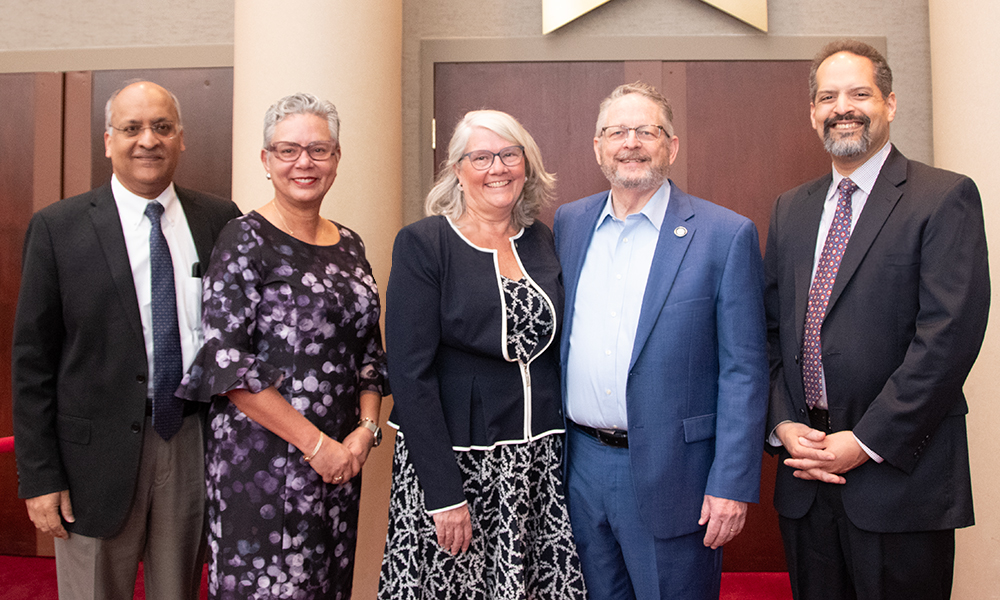 Pictured L to R: Drs. Anupam Agarwal, Patricia Molina, Jennifer and David Pollock, and Orlando GutierrezThe Cardio-Renal Physiology and Medicine (CPRM) team has every reason to celebrate! In their first decade, CRPM has demonstrated extraordinary success, securing over $50.6 million in research funding, leading to 192 publications and over 500 citations. Their oustanding work has also been recognized with over 140 national honors and awards, including three Pittman Scholars, three Endowed Professorships, and two Max Cooper Awardees.
Pictured L to R: Drs. Anupam Agarwal, Patricia Molina, Jennifer and David Pollock, and Orlando GutierrezThe Cardio-Renal Physiology and Medicine (CPRM) team has every reason to celebrate! In their first decade, CRPM has demonstrated extraordinary success, securing over $50.6 million in research funding, leading to 192 publications and over 500 citations. Their oustanding work has also been recognized with over 140 national honors and awards, including three Pittman Scholars, three Endowed Professorships, and two Max Cooper Awardees.
The CRPM traces its roots back to a seredipitous conversation between the Nephrology division director (now Dean of the Heersink School of Medicine), Dr. Anupam Agarwal, and Drs. David and Jennifer Pollock. This led to its establishment in 2014 as a basic and translational research program supported by the Heersink School of Medicine and Department of Medicine. CRPM began with four faculty members and has now expanded to eleven NIH-funded labs. Their research delves into sickle cell nephropathy, water and electrolyte disorders, and the nervous system’s role in kidney function. The CRPM’s decade-long journey highlights their dedication to understanding kidney disease, hypertension, obesity, and diabetes. Their collaborative spirit and research excellence position them to make significant future contributions in cardio-renal research and the scientific community.
Dr. Agarwal expressed how proud he was to be a part of successfully recruiting the Pollocks to UAB to create this impactful program ten years ago. “The research they have done is impactful, the publications that have come out, the grants that they have received impact our population significantly. And just for all those reasons, I am really proud to celebrate this,” Dr. Agarwal exclaimed.
This milestone marks a decade of significant contributions to the field, impacting patients through innovative research and training the next generation of experts. Cardiovascular and kidney diseases are leading causes of morbidity and mortality worldwide. CRPM’s research directly impacts patient lives by:
-
Investigating the underlying mechanisms of these diseases: This knowledge is crucial for developing new and more effective treatment strategies.
-
Developing novel therapies and interventions: CRPM researchers are actively translating their findings into tangible solutions for patients.
-
Training the next generation of researchers: By fostering a collaborative learning environment, CRPM is building a pipeline of talented individuals who will continue the fight against these diseases.
A Decade of Accomplishments
As mentioned, in its 10 years, CRPM has achieved impressive results in addition to securing significant research funding, such as:
-
Creating a thriving training environment: CRPM offers a wide range of training programs from pre- and postdoctoral scholars to gap years and short-term research experiences to enhance the culture and research within the Section of Cardio-Renal Physiology and Medicine, nurturing the next generation of experts.
-
Building a collaborative network: By fostering collaboration with leading scientists across disciplines, CRPM leverages diverse expertise to tackle complex challenges.
Looking Forward: A Commitment to the Future
As CRPM celebrates its past achievements, the future looks even brighter. They are committed to:
-
Building on their impressive record of collaboration: They believe that by working together, researchers can achieve even greater success.
-
Developing innovative training opportunities: CRPM aims to equip the next generation with the knowledge and skills needed to address future challenges in cardiovascular and kidney health.
-
Providing avenues for researchers to excel: They are dedicated to supporting their faculty and fellows, helping them reach their full potential and become leaders in the field.
Impact on Health Keynote Speakers:
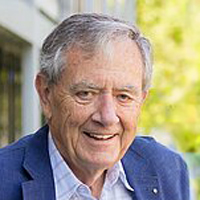 Friedrich C. Luft, M.D., Professor Emeritus
Friedrich C. Luft, M.D., Professor Emeritus
Max Delbruck Center Experimental & Clinical Research Center, Charité - Universitätsmedizin Berlin
Topic: "One gene, two phenotypes, and their relevance at 30 nanometers"
 Michelle L. Gumz, Ph.D., Professor
Michelle L. Gumz, Ph.D., Professor
Department of Physiology and Aging, University of Florida
Topic: "Circadian clock crosstalk in cardio-renal physiology"
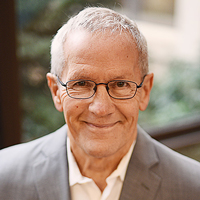 Greg Fink, Ph.D., Professor
Greg Fink, Ph.D., Professor
Pharmacology & Toxicology, Michigan State University
Topic: "Obesity and hypertension: What's the connection?"
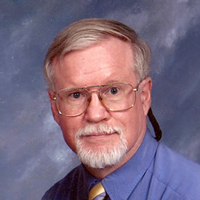 Mark Knepper, M.D., Director
Mark Knepper, M.D., Director
Epithelial Systems Biology Laboratory, National Heart Lung and Blood Institute
Topic:"The Aquaporin-2 Story"
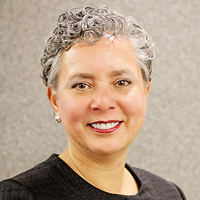 Patricia E. Molina, M.D., Ph.D., Richard Asman, Ph.D., Professor and Chair of Physiology, LSU Health Sciences Center
Patricia E. Molina, M.D., Ph.D., Richard Asman, Ph.D., Professor and Chair of Physiology, LSU Health Sciences Center
Director, Alcohol and Drug Abuse Center of Excellence
Topic: "The power of Physiology as a platform for translational research"
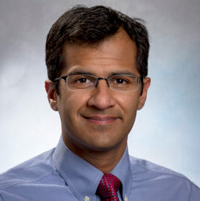 Rajat M. Gupta, M.D., Assistant Professor of Medicine, Harvard Medical School
Rajat M. Gupta, M.D., Assistant Professor of Medicine, Harvard Medical School
Medical and Population Genetics Group, Broad Institute
Topic: "High-throughput cellular genetics to link endothelial cells to cardio-renal disease"